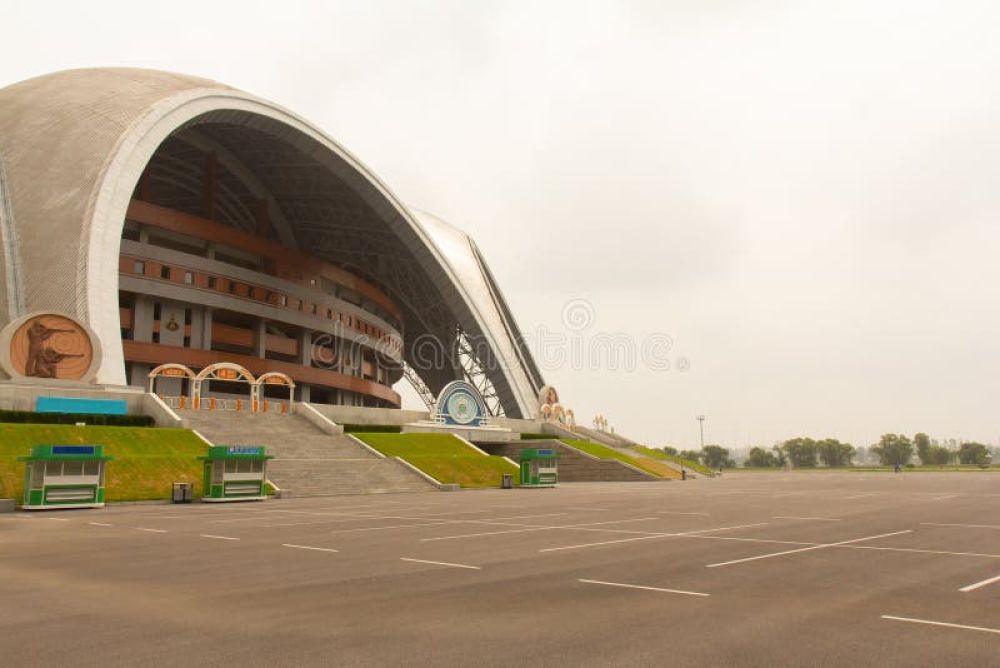

The food history of Rungna Island, like much of North Korea, is derived from traditional Korean cuisine that has been influenced by the seasons, available local ingredients, and historical circumstances. Korean food is characterized by its use of rice, noodles, tofu, vegetables, and a wide array of seasonings such as gochujang (red chili paste), doenjang (soybean paste), soy sauce, garlic, ginger, and sesame oil. Due to economic difficulties, the food of North Korea has often been simpler and less diverse compared to South Korea. However, North Korean cuisine takes pride in its kimchi and other pickled dishes, which are usual staples accompanying most meals.
Kimchi (Non-Veg/Veg) - Perhaps the most famous Korean dish, Kimchi is a staple in Korean cuisine. It is a fermented vegetable dish, usually with cabbage and radish, and often includes seafood ingredients for flavor, but it can also be found in vegetarian varieties.
Naengmyeon (Non-Veg) - A cold noodle dish made from buckwheat noodles served in a tangy iced broth, sometimes with slices of pear and cucumber. It usually includes slices of boiled beef or pork.
Bibimbap (Non-Veg/Veg) - A mixed rice dish typically served with seasoned vegetables, egg, and sliced meat. Vegetarian versions are available without the meat.
Japchae (Veg) - Stir-fried sweet potato noodles with a variety of vegetables, which can be served with or without slices of beef or pork.
Dubu Jorim (Veg) - A Korean side dish made by braising tofu in a sauce. This is often enjoyed by vegetarians and vegans alike.
Bindaetteok (Veg) - Mung bean pancakes that can be found in both vegetarian and non-vegetarian versions. These savory pancakes are a popular street food.
Kongnamul Guk (Veg) - A simple and comforting soybean sprout soup that is typically vegan.
Yaksik (Veg) - A sweet and sticky rice dish that's mixed with nuts, jujubes, and honey or sugar. It's a dessert dish that is usually vegan.
Sundubu-jjigae (Non-Veg/Veg) - A hot and spicy stew made with uncurdled tofu, vegetables, sometimes seafood or meat, and gochujang or gochugaru. Vegetarian options without seafood or meat exist.
Hobakjuk (Veg) - A sweet pumpkin porridge that is typically vegan and often eaten for breakfast or as a snack during cold weather.
Information about specific restaurants and their addresses in North Korea, particularly on Rungna Island, may not be readily available due to the limited exposure and restrictions on information flow. In North Korea, many food establishments are operated by the state and private-run restaurants are rare. Tourists are usually brought to state-approved venues, where they can experience a selection of North Korean dishes, often prepared with both tourists and local elite in mind.
Okryu-gwan (Downtown Pyongyang) - While not on Rungna Island, this famous North Korean restaurant offers authentic Pyongyang-style cold noodles, known as Naengmyeon. While the address is not specified for Rungna Island venues, Okryu-gwan is one of the most well-known restaurants in North Korea.
Chongryu Hotpot Restaurant (Pyongyang) - Also located in North Korea's capital, Chongryu is renowned for hotpot dishes. While it is not on Rungna Island, travelers to North Korea may be taken to establishments like this to experience hotpot without meat derived from cows.
Due to the nature of North Korean society, it is advisable for tourists to go through state-sanctioned tour companies that can provide updated information on where to eat and what one may expect to experience in North Korean restaurants.